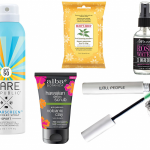One possible culprit for feeling low this time of year is seasonal affective disorder: It's typically associated with winter, but warmer temperatures and brighter days aren't always enough to lift the blues. What's more, seeing cheery people all around you is a constant reminder that others are having a good time when you aren't, says Michelle Riba, MD, professor and associate director of the University of Michigan Comprehensive Depression Center.
There's also a phenomenon called summertime depression, she adds, which means people may start to get sad when spring arrives. “We don’t really know why. It may be hormonal for women, and there are theories related to melatonin production, but we’re not sure,” she says.
RELATED: 12 Surprising Causes of Depression
And then there are social influences that can bring a person down: This time of year, "people go on vacations, and some groups may be disbanding for the season," explains Dr. Riba. "So there may be less structure and a sense of support in place.” Meanwhile, you're watching friends enjoy those picture-perfect vacays on Facebook or Instagram. “You wish well for everybody but sometimes you can experience jealousy and envy when you see this," says Dr. Riba. Especially if you happen to be struggling with challenges in your own life, like a bad breakup or financial concerns.
Given these factors, it may not seem so surprising that suicide rates rise this time of year. Suicide rates spike in the spring and to a lesser extent in the fall, according to the Centers for Disease Control and Prevention, not around the holidays as everyone suspects. And in fact, suicides in general have increased 24% between 1999 and 2014, according to a CDC report released in April. The uptick begins in early April and late May. Why? The seasonal brightness may actually have something to do with that: In a recent op-ed in The Washington Post Harvard professor of psychology Matthew Nock cited a 2014 study published in JAMA Psychiatry that found that as hours of sunlight increased, so did the risk of suicide. "The authors speculate that sunlight could boost energy and motivation, thus giving people who are depressed the ability to take action and make a suicide attempt," he wrote.
And some researchers are looking at suicide rates at times of high-pollen counts compared with less pollen, theorizing that the increase might be due to increased anxiety or aggression related to inflammation, according to Vox…




 D5 Creation
D5 Creation
Comments are Closed